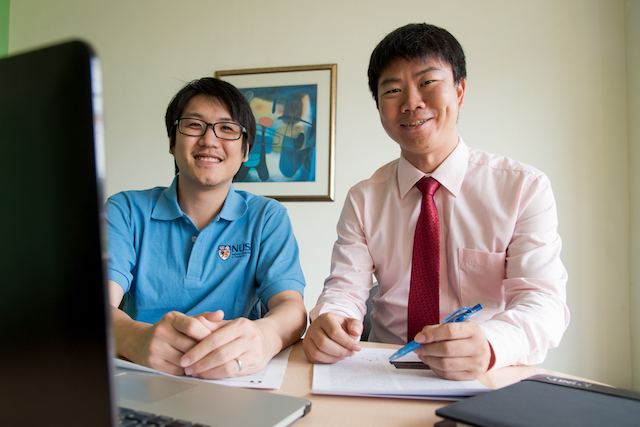Older adults are good Samaritans
A NUS study found seniors are more helpful to strangers than younger adults.
People tend to become more generous as they age. This certainly holds true when it comes to helping strangers, according to a recent study by researchers from the National University of Singapore (NUS) which found that while older adults treat those close to them such as family members and close friends the same as younger adults do, the seniors donate more to strangers than younger adults. This is even if their generosity is unlikely to be reciprocated.
Explained Assistant Professor Yu Rongjun, who led the study: “Greater generosity was observed among seniors possibly because as people become older, their values shift away from purely personal interests to more enduring sources of meaning found in their communities.” Asst Prof Yu is from the Department of Psychology at the NUS Faculty of Arts and Social Sciences, as well as the Singapore Institute for Neurotechnology at NUS. The results of the study were published in April in the “Journals of Gerontology: Psychological Sciences”.
The study
Studies have shown that as people age, they are inclined to volunteer more frequently, are more attentive to ecological concerns, and are less interested in becoming rich. However, there is a lack of understanding of the core motive behind such altruistic behaviour. The team led by Asst Prof Yu wanted to address this knowledge gap by looking at how social relationships with others influence how much older adults donate in comparison with younger adults.
The study, which was conducted from March 2016 to January 2017, involved 78 adults in Singapore. Thirty-nine of them were older adults with an average age of 70, while the other 39 were younger adults who were about 23 years old.
The NUS research team employed a framework known as social discounting to quantify generosity towards people. The framework works on the principle that people treat those they are closer with better than those whom they are more distantly acquainted, and much better than total strangers. The participants had to rate how close they were to people in their social environment, and the amount of money they would give to each respective person. Using a computational model, the NUS research team calculated the amount of money that the participants are willing to give to another person as a function of social distance.
From the results, Asst Prof Yu recommended that providing older adults with more opportunities to help others is not only beneficial to society, but “it might also be a boon to the well-being of older adults themselves”. He added that future studies with direct well-being measures should further examine this hypothesis.
Future studies
To further their understanding on how decision-making shifts among the elderly, Asst Prof Yu and his team at NUS are embarking on studies to examine the neural mechanisms underlying the changes in decision-making by using brain-imaging technologies. Research findings from these studies have the potential to be translated into effective intervention programmes to promote healthy ageing, and may help tackle age-related conditions such as Parkinson’s disease and Alzheimer’s disease, which are often characterised by deficits in decision-making.
(** PHOTO CREDIT: National University of Singapore)


0 Comments